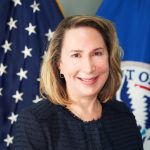Why Oregon forests may continue to burn
Last year’s fire season was bad. This year’s could be too. So why does agreement on a plan to reduce the likelihood of forest fires remain elusive?
“We keep hearing that if only we could do active management we could reduce the risk of severe fires,” said Dominick DellaSala, chief scientist at the Geos Institute, a climate change solutions advocacy group based in Ashland. “I heard that continuously when I testified before Congress last September. But when we looked at 1,500 fires, we found it’s the areas with the most active management that had the highest amount of high-severity fires. They wouldn’t believe that data.”
Read the full article by Pete Danko at the Portland Business Journal
Comments on the Chetco Bar post-fire logging environmental assessment
Geos Institute and NGO comments on the Chetco Bar post-fire logging environmental assessment. The Chetco fire took place in an area of extraordinary botanical diversity, spectacular wild rivers, and a potential climate sanctuary along the Oregon-California border that benefited from the fire but will be impacted by extensive post-fire logging by the Forest Service.
Everything you wanted to know about wildland fires in forests but were afraid to ask
Geos Institute releases a new report, “Everything you wanted to know about wildland fires in forests but were afraid to ask: lessons learned, ways forward“, summarizing latest wildfire science and calls on decision makers to develop science-based policies that protect communities from fire and allow wildfires to perform their ecological functions safely in the backcountry.
Media Coverage
- Phys.org highlighted this report on April 9, 2018
Wildfire funding fix confounds omnibus talks
Marc Heller and Geof Koss, E&E News reporters
Published: Wednesday, March 21, 2018
A long-term solution to address the climbing cost of wildfires continued to stymie lawmakers yesterday, despite a near-agreement to loosen some environmental restrictions on timber harvesting.
Lawmakers, congressional aides and industry insiders tracking the issue said top lawmakers were on the cusp of a deal early this week, only to see it dashed for a reason that some hadn’t seen as contentious: how to set up disaster funding so the Forest Service can cover the cost without hurting other programs.
The basic outline of a deal, they said, involved expanding certain categorical exclusions from the National Environmental Policy Act. The exceptions allowed for forest thinning on several thousand acres and expanding “good neighbor” authority that allows the Forest Service to work with states on forest management projects.
Over 200 scientists sign letter to Congress about proposals to “fix” funding for Wildland Fire Management
Congress has included 90 anti-environmental riders on the Omnibus Appropriations bill that it is rushing to pass next week. Measures to address runaway wildfire suppression spending, for instance, include destructive riders to eliminate protections for old-growth forests and roadless areas in Alaska, expand Categorical Exclusions (no environmental review) on logging projects up to 6,000 acres, and weaken protections for endangered species.
I am excited to report that over 200 scientists have signed on so far. The letter will be delivered to Capitol Hill staffers on Friday morning DC time; however, we will continue to accept signatories through Tuesday of next week as we update the final count and resubmit the letter later.
Aftermath of the 2017 Chetco Bar Fire
Commissioners hit Forest Service with vote of “no confidence,” but they stand alone
By Curtis Hayden
Originally published in Sneak Preview on March 1, 2018 (Grants Pass and Medford) and April 1 (Ashland)
The timing was impeccable. A couple of weeks ago my wife and I were visited by some friends from Portland, Tom and Laura, and when I mentioned that I was writing a story about the Josephine County commissioners and their vote of no-confidence in the ability of the U.S. Forest Service to handle catastrophic forest fires, Tom went out to his car and returned with a book he was reading, Timothy Egan’s The Big Burn.
I figured the book was about the Tillamook Fire of 1933 because I’d heard a lot about that Mother of All Fires over the years.
“The Tillamook Fire was nothing,” Tom said. “It only burned 300,000 acres. This book is about the fire that took place in northern Idaho, Montana and Washington in 1910, which burned over three million acres.”
Aftermath of the 2017 Chetco Bar Fire
Commissioners hit Forest Service with vote of “no confidence,” but they stand alone
By Curtis Hayden
Originally published in Sneak Preview on March 1, 2018 (Grants Pass and Medford) and April 1 (Ashland)
The timing was impeccable. A couple of weeks ago my wife and I were visited by some friends from Portland, Tom and Laura, and when I mentioned that I was writing a story about the Josephine County commissioners and their vote of no-confidence in the ability of the U.S. Forest Service to handle catastrophic forest fires, Tom went out to his car and returned with a book he was reading, Timothy Egan’s The Big Burn.
I figured the book was about the Tillamook Fire of 1933 because I’d heard a lot about that Mother of All Fires over the years.
“The Tillamook Fire was nothing,” Tom said. “It only burned 300,000 acres. This book is about the fire that took place in northern Idaho, Montana and Washington in 1910, which burned over three million acres.”
Apologies from teen who started Eagle Creek fire
On Friday Februray 16th the following article was posted online by the Washington Post, featuring the work of Forest Legacies director Dominick DellaSala.
The 15-year-old boy who started a wildfire that torched 48,000 acres of one of the northwest’s most coveted scenic regions entered the courtroom stoically Friday. Wearing a beige suit, a black necktie and with his hair neatly combed, he admitted to all 12 of the misdemeanor charges against him, and when he spoke to the courtroom, he apologized.
He apologized seven times.
The wildfire he admitted to sparking along the Eagle Creek Trail — in the heart of the Columbia River Gorge National Scenic Area — started Sept. 2 when he hurled a firecracker into a dry ravine as a group of friends filmed him with a cellphone. On that scorching-hot afternoon, the state was in the midst of a burn ban.
“Every day I think about this terrible decision and its awful consequences,” said the Vancouver, Wash., boy, who is being identified by the judge only by his initials, A.B. “I know I will have to live with my bad decision for the rest of my life.”
Agreement skips over wildfire funding fix
This story from E&E News is especially timely. We’ve been pushing hard here at Forest Legacies on the fire fix funding as there are really bad logging provisions being proposed by Congress that would usher in massive logging on national forests, eliminate roadless and old growth protections on the Tongass National Forest in Alaska, and bypass landmark environmental laws. We recently with law makers and the reporter below while in DC. This is a big push nationally to maintain public lands protections that we are involved with.
By Marc Heller and Geof Koss, E&E News reporters
Originally Published at E&E News on Thursday, February 8, 2018
The battle over federal wildfire funding and forest management will go on, given that a broad budget deal between Senate leaders failed to resolve the issue.
Cumulative Impacts Research Consortium Panel Presentation: Wildfire preparedness and Cumulative Impacts
Watch a recording from January 19, 2018 from the University of Northern British Columbia “Cumulative Impacts Research Consortium Panel Presentation: Wildfire preparedness and Cumulative Impacts“.
Presenters are: Dominick DellaSala, Madeline Maley, Raina Fumerton, and Sonja Leverkus.
Latest News
Stay Updated!
Sign up to stay updated on our current initiatives and receive information you can use to build resilience in your community.
Forest Legacies
This post was created as part of our past initiative Forest Legacies.

 Robert Macnee, Ph.D. is Deputy Director of Resilience Services at Climate Resilience Consulting, where he helps governments, institutions, and communities reduce climate risk in equitable and practical ways. He holds a Ph.D. in Environmental Management focused on climate change impacts on health and communities, and brings over a decade of experience spanning economic development, resilience planning, and implementation.
Robert Macnee, Ph.D. is Deputy Director of Resilience Services at Climate Resilience Consulting, where he helps governments, institutions, and communities reduce climate risk in equitable and practical ways. He holds a Ph.D. in Environmental Management focused on climate change impacts on health and communities, and brings over a decade of experience spanning economic development, resilience planning, and implementation. Samantha Medlock is President of Climate Risk Advisors, helping communities and organizations advance equity, sustainability, and resilience. Her career began chasing floods as a local official in Texas Flash Flood Alley—a hands-on experience that still shapes her approach to climate and disaster risk management.
Samantha Medlock is President of Climate Risk Advisors, helping communities and organizations advance equity, sustainability, and resilience. Her career began chasing floods as a local official in Texas Flash Flood Alley—a hands-on experience that still shapes her approach to climate and disaster risk management.
 Arsum is the Senior Adaptation and Coastal Resilience Specialist for the National Wildlife Federation’s Southcentral Region. In this role, she advances climate adaptation efforts, with a focus on nature-based approaches to address the impacts of climate change and extreme events across the Gulf region. She has authored and co-authored numerous publications on climate impact assessments and adaptation solutions. Additionally, she regularly participates in state-based coastal resilience and hazard mitigation planning across the Gulf, collaborating with regional and local stakeholders.
Arsum is the Senior Adaptation and Coastal Resilience Specialist for the National Wildlife Federation’s Southcentral Region. In this role, she advances climate adaptation efforts, with a focus on nature-based approaches to address the impacts of climate change and extreme events across the Gulf region. She has authored and co-authored numerous publications on climate impact assessments and adaptation solutions. Additionally, she regularly participates in state-based coastal resilience and hazard mitigation planning across the Gulf, collaborating with regional and local stakeholders. Jim is a multilingual world traveler. Based in Bavaria during the 1970s, Jim spent most of this period in India, Afghanistan and Nepal, where he founded and operated a charitable medical clinic serving Tibetan Refugees. He settled in Oregon in 1983 on a forested ranch in the Umpqua National Forest.
Jim is a multilingual world traveler. Based in Bavaria during the 1970s, Jim spent most of this period in India, Afghanistan and Nepal, where he founded and operated a charitable medical clinic serving Tibetan Refugees. He settled in Oregon in 1983 on a forested ranch in the Umpqua National Forest. Dr. Micah Hahn is an Associate Professor of Environmental Health in the Institute for Circumpolar Health Studies at the University of Alaska-Anchorage. She received her joint PhD in Epidemiology / Environment and Resources from the University of Wisconsin-Madison and her MPH in Global Environmental Health from Emory University. Subsequently, she was a postdoctoral fellow for the CDC Climate and Health Program, and in this position worked collaboratively with the CDC Division of Vector-borne Diseases and the National Center for Atmospheric Research. Her research focuses on understanding the health impacts of climate change and working with communities to develop locally-relevant adaptation and resilience-building strategies. Dr. Hahn is also on the Management Team of the Alaska Climate Adaptation Science Center.
Dr. Micah Hahn is an Associate Professor of Environmental Health in the Institute for Circumpolar Health Studies at the University of Alaska-Anchorage. She received her joint PhD in Epidemiology / Environment and Resources from the University of Wisconsin-Madison and her MPH in Global Environmental Health from Emory University. Subsequently, she was a postdoctoral fellow for the CDC Climate and Health Program, and in this position worked collaboratively with the CDC Division of Vector-borne Diseases and the National Center for Atmospheric Research. Her research focuses on understanding the health impacts of climate change and working with communities to develop locally-relevant adaptation and resilience-building strategies. Dr. Hahn is also on the Management Team of the Alaska Climate Adaptation Science Center. Michael is a former Founding Principal of Resilient Cities Catalyst, a global non-profit helping cities and their partners tackle their toughest challenges. He is currently the Executive Director of Climate Resilience Academy at the University of Miami.
Michael is a former Founding Principal of Resilient Cities Catalyst, a global non-profit helping cities and their partners tackle their toughest challenges. He is currently the Executive Director of Climate Resilience Academy at the University of Miami. Dr. Quintus Jett is a consultant, educator, and strategist for public causes. He has a doctorate in Organizations & Management from Stanford University, and a two-decade faculty career which spans schools, departments, and programs of business, engineering, liberal studies, divinity, and public and nonprofit management. Following Hurricane Katrina in 2005, Dr. Jett launched a volunteer project in New Orleans, which enlisted residents, students from over a dozen colleges and universities, and hundreds of others to field map the city’s Gentilly district, Lower Ninth Ward, and New Orleans East. Dr. Jett is an innovator in higher education, bridging the divide between academic research and the other priorities of the modern university, including student access and diversity, community engagement, and providing foundations for life-long learning in today’s rapidly changing world.
Dr. Quintus Jett is a consultant, educator, and strategist for public causes. He has a doctorate in Organizations & Management from Stanford University, and a two-decade faculty career which spans schools, departments, and programs of business, engineering, liberal studies, divinity, and public and nonprofit management. Following Hurricane Katrina in 2005, Dr. Jett launched a volunteer project in New Orleans, which enlisted residents, students from over a dozen colleges and universities, and hundreds of others to field map the city’s Gentilly district, Lower Ninth Ward, and New Orleans East. Dr. Jett is an innovator in higher education, bridging the divide between academic research and the other priorities of the modern university, including student access and diversity, community engagement, and providing foundations for life-long learning in today’s rapidly changing world. Scott is Monfort Professor of Atmospheric Science at Colorado State University. He has written about 100 publications in the peer-reviewed climate literature, is a former editor of the Journal of Climate, and served for five years as founding Science Chair of the North American Carbon Program.
Scott is Monfort Professor of Atmospheric Science at Colorado State University. He has written about 100 publications in the peer-reviewed climate literature, is a former editor of the Journal of Climate, and served for five years as founding Science Chair of the North American Carbon Program. Linda has many years of experience in disaster preparedness and resilience. She has been an elected official on the Linn County Iowa Board of Supervisors, Chair of the Metropolitan Planning Organization, the East Central Iowa Council of Governments, the statewide Mental Health Developmental Disability and the Linn County Board of Health. Langston is a former president of the National Association of Counties (2013-2014).
Linda has many years of experience in disaster preparedness and resilience. She has been an elected official on the Linn County Iowa Board of Supervisors, Chair of the Metropolitan Planning Organization, the East Central Iowa Council of Governments, the statewide Mental Health Developmental Disability and the Linn County Board of Health. Langston is a former president of the National Association of Counties (2013-2014). Ken works with families and organizations as a mediator, organizational consultant, trainer and facilitator. Along with his passion for helping people prepare for and reduce climate change, Ken also volunteers as a mediator through Mediation Works and is passionate about supporting youth through mentoring with Boys to Men of Southern Oregon.
Ken works with families and organizations as a mediator, organizational consultant, trainer and facilitator. Along with his passion for helping people prepare for and reduce climate change, Ken also volunteers as a mediator through Mediation Works and is passionate about supporting youth through mentoring with Boys to Men of Southern Oregon. Matthew is a retired high school teacher who was once honored as Oregon High School Social Studies Teacher of the Year. Before his teaching career he was in the restaurant business in Portland. He is also a lawyer who has been a member of the Oregon State Bar Association since 1980.
Matthew is a retired high school teacher who was once honored as Oregon High School Social Studies Teacher of the Year. Before his teaching career he was in the restaurant business in Portland. He is also a lawyer who has been a member of the Oregon State Bar Association since 1980. Andrea is the Resilience Policy Advisor for the North Carolina Office of Recovery and Resiliency. She works across state agencies and with local governments to increase the state’s resilience to the impacts of climate change.
Andrea is the Resilience Policy Advisor for the North Carolina Office of Recovery and Resiliency. She works across state agencies and with local governments to increase the state’s resilience to the impacts of climate change.